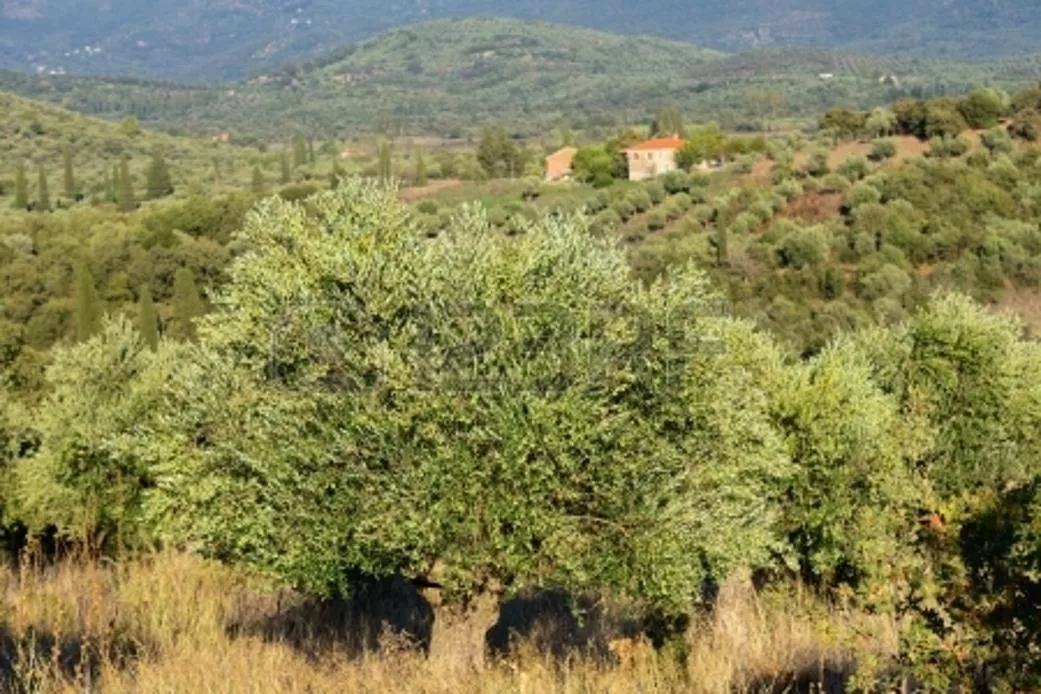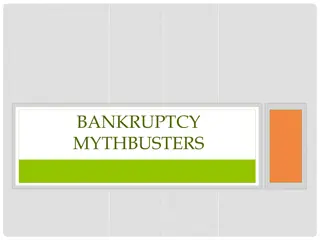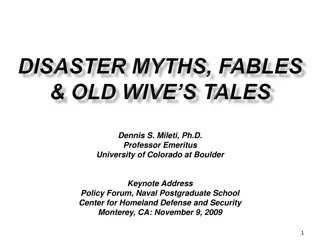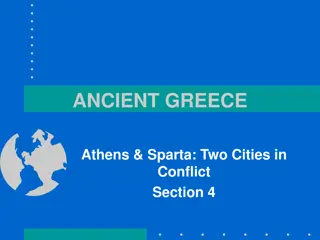Spartan Economy Overview and Myths
Spartan economy was controlled by the state with property ownership restrictions. They used iron currency bars to deter trade, but in reality, valued goods in silver coins. The land was redistributed to address inequality. Some myths like the iron bars and vinegar treatment were considered absurd.
Download Presentation

Please find below an Image/Link to download the presentation.
The content on the website is provided AS IS for your information and personal use only. It may not be sold, licensed, or shared on other websites without obtaining consent from the author. Download presentation by click this link. If you encounter any issues during the download, it is possible that the publisher has removed the file from their server.
E N D
Presentation Transcript
WHAT WAS THE SPARTAN ECONOMY DEPENDENT ON?
SPARTAN ECONOMY The State Controls every aspect of economic life, Property Economic activity Economy is rather primitive Currency system iron Barter Cater to basic needs Citizenship = pay one s way in the messes, and Spartans who cannot pay their way become Inferiors (hypomeiones). Property is privately owned, but with restrictions. Until the 5thc. one cannot dispose of it as they wish, and the helots are the property of the state.
ECONOMY he commanded that all gold and silver coin should be called in, and only a sort of money made of iron should be current, a great weight and quantity of which was very little worth; so that to lay up twenty or thirty pounds there was required a pretty large closet, and, to remove it, nothing less than a yoke of oxen. With the diffusion of this money, at once a number of vices were banished from Lacedaemon; for who would rob another of such a coin? Who would unjustly detain or take by force, or accept as a bribe, a thing that it was not easy to hide, nor a credit to have, or of any use to cut in pieces? For when it was just red hot, they quenched it in vinegar, and by that means spoilt it, and made it almost incapable of being worked. Plutarch Plutarch
IRON BARS Iron bars were meant to hinder trade. Bars were heated and treated in a vinegar acid bath which made them brittle and worthless. No source refers to anyone using an iron bar for trade. Many sources refer to gold and silver coins. BUT ..
BUT. In reality Spartans reached valuations of material goods mainly in terms of silver coins. In reality Spartans reached valuations of material goods mainly in terms of silver coins. Over the horizon of conceptualization, conventional monetary behaviour, both Over the horizon of conceptualization, conventional monetary behaviour, both offshore and away from public inspection, was enacted analogously to the operation offshore and away from public inspection, was enacted analogously to the operation of a modern black economy involving actions shielded from government scrutiny. of a modern black economy involving actions shielded from government scrutiny. Thomas J Thomas J Figueria Figueria studies of Spartan economy studies of Spartan economy Secret stocks of precious metal in their homes Coinage from island of Aigina (silver) Mess contributions small monthly payment in coin for fish and meat (Plutarch) HOWEVER Michell calls the tales of the iron bars and vinegar absurd and may be disregarded .
LAND OWNERSHIP LAND OWNERSHIP PLUTARCH S VERSION PLUTARCH S VERSION "Lycurgus' second, and most revolutionary, reform was his redistribution of the land. For there was dreadful inequality: many destitute people without means were congregating in the city, while wealth had poured completely into just a few hands. In order to expel arrogance, envy, In order to expel arrogance, envy, crime, luxury and those yet older and more serious political afflictions, crime, luxury and those yet older and more serious political afflictions, wealth and poverty wealth and poverty, Lycurgus persuaded the citizens to pool all the land and then redistribute it afresh and then redistribute it afresh. Then they would all live on equal terms with one another, with the same amount of property same amount of property to support each, and they would seek to be first only in merit they would seek to be first only in merit. There would be no distinction or inequality between individuals distinction or inequality between individuals except for what censure of bad conduct or praise of good would determine. pool all the land no
THE ECONOMY OF SPARTA UNTIL THE 5TH C. Even before the conquest of Messenia, the land of Laconia had been divided to 9000 lots, roughly equal in productivity. A lot had the potential to produce approximately 100 medimnoi (= 30 metric tons) of wheat asses exhausted under great loads: under painful necessity to bring their masters full half the fruit their ploughed land produced Tyrtaeus Tyrtaeus
THE ADVANTAGES OF THE SYSTEM For a long time, in the years of growth of Spartan power, the system served the Spartans well. It provided Economic stability and predictability Time to pursue military excellence Social cohesion Equality and virtue which the Spartans desired and honored. The so characteristically Spartan lifestyle of having one s needs satisfied without excess or luxury.
BUT THERE ARE PROBLEMS WITH THIS VIEW Michell (in Webb, p. 52): Primogeniture? A kleros may not necessarily run efficiently. Spartan men had to mortgage their land.
THE RHETRA OF EPITADEUS (5TH CENTURY BC) However there were disadvantages too: Gradually more and more Spartans found it harder to find lots (mothakes) Gradually more and more Spartans fell into the ranks of the Inferiors The system was too inflexible to address the needs of a changing world, where powers like rival Athens were building economic empires, and where wealth meant strength. Thus in the 5th century there was a significant reform introduced by the ephor Epitadeus The rhetra (constitutional amendment) of Epitadeus allowed each Spartan to make a will and leave his property to whoever he wished. We are told that the motives of Epitadeus were personal, but the Spartans accepted the law as a solution to mounting economic and social problems.
THE RESULT Inflexible economic system and greed = catastrophic result The sale of lots until then prohibited became a reality (probably in the form of bequests). Some people accumulated a large amount of property, while most others lost their citizenship and became Inferiors. By the 3rd century only 700 full Spartan citizens remained. remained. 700 full Spartan citizens Aristotle - 2/5 of Sparta s property was owned by women More problems More property owned by women meant fewer men with full citizenship. Spartan officials and ambassadors - prone to bribery, corruption and increasing luxury In Sparta the link between citizenship and landownership was never severed, and this was the undoing of Sparta. By the 370 s it was painfully obvious that this link was reducing the number of Spartan citizens, swelling the numbers of dissatisfied inferiors and creating inequalities and difficulties which the Spartan system was not equipped to accommodate. Aristotle (The Politics Bk2 Ch9): "For we find that some Spartans have far too much property, others very little indeed; the land has come into the posession of a small number... For their lawgiver... left it open for anyone to transfer land to other ownership by gift or bequest... Moreover, something like two-fifths of all the land is possessed by women... But it is obvious that if many sons are born and the land distributed accordingly, many must inevitably become poorer."
SAMPLE RESPONSE 2015 TRIAL Describe the system of land ownership in Sparta in this period. Describe the system of land ownership in Sparta in this period. 4 marks 4 marks The system of land ownership was made by the legendary Lycurgus (Plutarch). Each Spartiate would be given an allotment of land when they were born called the kleros. The kleros was an importance in Sparta since it indicates if a Spartan was meeting the requirements to be a Spartiate or not. The helots would work on the kleros and the Spartans had to bring an amount of food to the syssitia over a period of time. According to Aristotle, he criticised the system of land ownership because 2/5 of the land belonged to the women and the modern historian also suggests that the allotment would never be equal. The aim Lycurgus established the system was to ensure the equality and no luxurious needs for any Spartans. Need to include buying/selling land. 4
HSC 2012 Describe how land ownership was organised in Sparta in this period. (5 marks) Land system as described by Lycurgus Organisation Advantages Purpose Problems with ownership Modern Aristotle Declining numbers of citizens Problems with inheritance ANCIENT SOURCES: Plutarch Aristotle MODERN SOURCES: Michell Hodkinson In better responses, candidates wrote an informed and detailed description organisation of land in Sparta and considered a wide range of different land ownership examples from the sources examples from the sources. In weaker responses, candidates referred to a limited number of examples. Some considered only one type of land ownership. informed and detailed description of the a wide range of different land ownership

 undefined
undefined



























